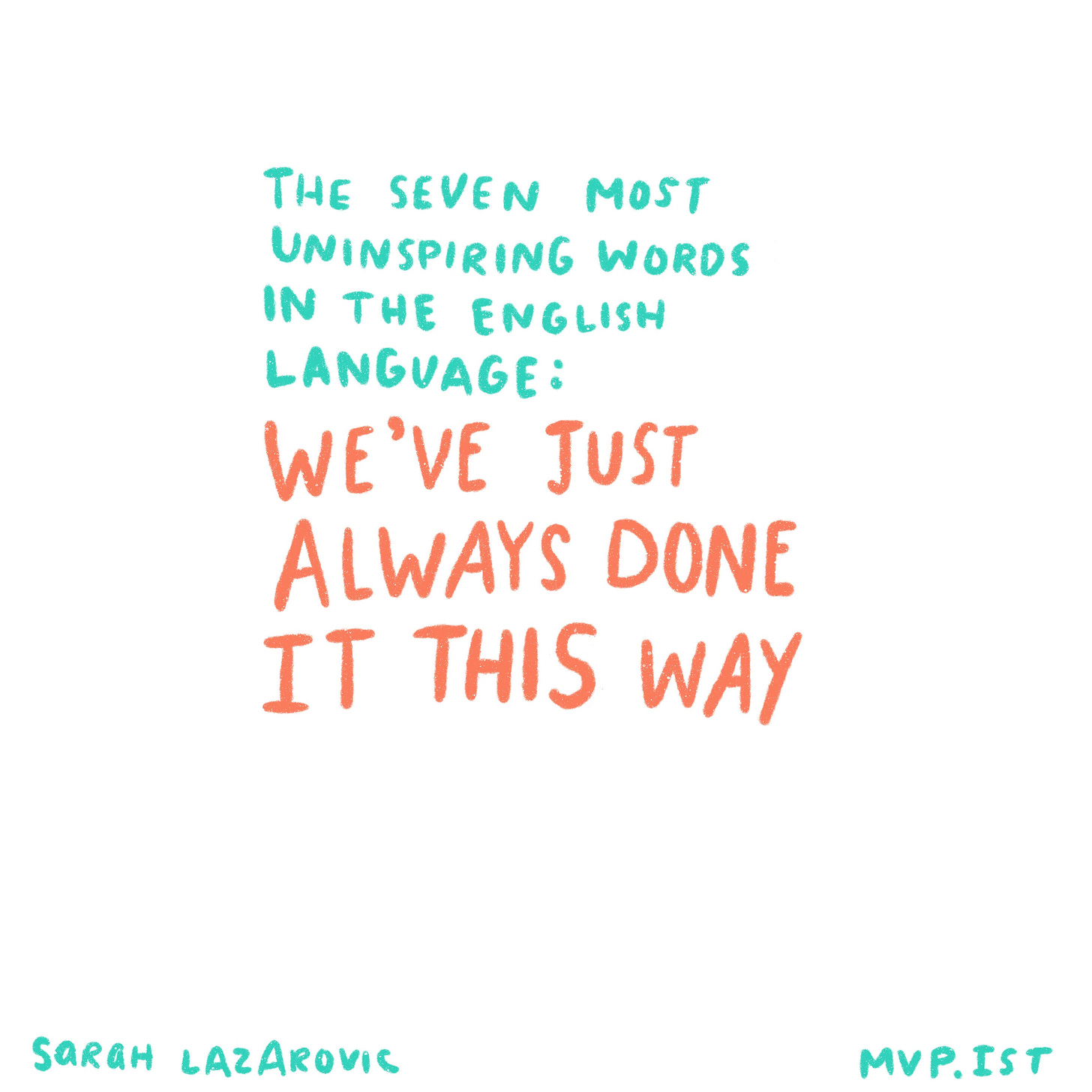A Supposedly Mainstream Thing I'll Never Do Again
Stuff the whole world does, just because, and how we misinterpret that just because for passionately passionate conviction

If I had another lifetime I’d write a dissertation on status quo bias. More specifically, the idea that we grossly misread status quo. What do I mean by this? Mostly, that we interpret broad signifiers as meaningful endorsements of the rote way of doing something. And that we conflate majority behaviour with deep attachment to the status quo, where in fact the status quo is by definition the way we’ve always done things, often with little to no thought applied to it. Like asking ‘how are you?’

The overweighted status quo example I cite most often happened at my least favourite event of the year: my children’s school fun fair. Last year, everyone worried the kids would mutiny when we did away with the plastic nothings we gave as prizes. We exaggerated their attachment to garbage prizes because we overweighted their attachment to status quo. But I womanned the raffle ticket table for the entirety of the fair, and there was nary a complaint about the change from plastic forgettables to donated raffle items of books and experiences. Or maybe there was; I was wearing ear plugs. In my head.
This experience led me to think we might be overweighting for status quo across many domains. Of course, my second experiment in this regard proved me totally wrong. At work I partnered with my friend Ben of iRUN Magazine to launch a research project about running race waste. My bias clouded my judgment. Despite my husband’s insistence that runners love their tacky participation medals, I thought people wouldn’t miss these hideous awards or the ugly t-shirts or the dubiously-flavoured freebie power gels. Our survey proved otherwise.
People, even those who wanted to do much more to make races more sustainable, would definitely miss the swag and indicated as much on their surveys. My thinking had been clouded by a bit of conjunction fallacy. I mostly presumed that runners were all like me. Nopers.
The lesson in both these examples is that our capacity to gauge the strength of the status quo is highly flawed. Sometimes people are deeply attached, and sometimes the attachments are completely superficial. And yet so much of what we think and do is based on these made-up cues we take from the world around us. It happens quick. My daughter came from camp and told me everyone was wearing scrunchies. She isn’t wrong. I suddenly noticed all my younger colleagues sporting giant half ponies in neon scrunchies. I suspect a covert campaign has been waged by Big Scrunchie to make these guys the normative hair holder. You want to be different? Try a banana clip, my friend.

When it comes to climate positioning, I’m less certain than ever that I know how people feel. I’ve ascribed to the status quo a belief that people generally care but don’t know what to do about climate change, but this is as made up as a Trump fact. Recently, I got my hands on research on how Canadians feel about the carbon tax. I was confronted by the gaping chasm between what I’d conjured up as truth and the truth itself. Turns out most Canadians don’t know much about the carbon tax, let alone have an opinion about it. When they do find out they get a rebate, they support the tax.
THIS WEEK:
What are the strong and weak mainstream beliefs around you? How do you know?
Are you wearing a scrunchie right now?
LISTEN:
Ezra Klein’s discussion with Sunrise Movement co-founder Varshini Prakashi is really really good. And inspiring, too. (Bonus concise demystification of why boomers might not be able to wrap their heads around the gravity of the climate crisis)
Have a wonderful Wednesday!

